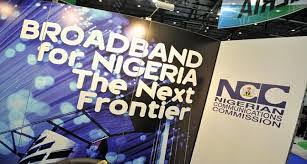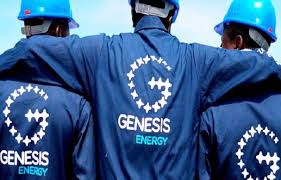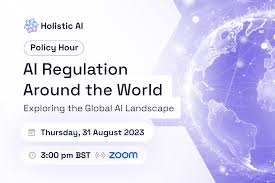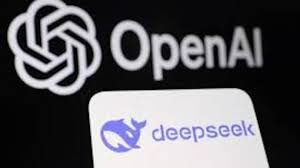Group Managing Director of the award-winning Port Harcourt-based Solewant Group, Mr Solomon Ewanehi, in this interview with Ediri Ejoh, said steel pipes and advanced coating solutions produced in Nigeria can now favourably compete in the global oil and gas industry. Excerpts:
What difference has your steel manufacturing plant made in the Nigerian oil and gas industry?
Our steel manufacturing plant has been a game-changer in the Nigerian oil and gas industry, and its impact is both profound and multifaceted. As the Group Managing Director (GMD) of Solewant Group, I can confidently say that this facility embodies our commitment to advancing local capacity, reducing dependence on imports, and fostering industrial growth in Nigeria. Let me explain a bit further to provide some context to this.
Before our steel manufacturing plant came on the line, the Nigerian oil and gas industry heavily relied on imported steel pipes and other critical materials, which often caused delays in project timelines and inflated costs. Today, we produce high-quality steel pipes locally, meeting both national and international standards. This has significantly reduced the need for imports, cutting down on foreign exchange outflows and ensuring projects proceed without the logistical hurdles of sourcing for materials entirely from overseas.
Our plant has directly supported the objectives of the Nigerian Content Development and Monitoring Board (NCDMB) by significantly increasing local content in oil and gas projects. Beyond manufacturing, the plant has also been instrumental in training and employing Nigerian professionals, fostering technical expertise, and creating a pipeline of skilled talent for the future.
By having a local steel manufacturing plant, operators in the oil and gas sector now have access to faster delivery timelines and the ability to customise solutions to project-specific requirements. This flexibility gives us an edge in ensuring that client projects are executed efficiently and with much greater level of precision.
The ripple effect of our plant on the Nigerian economy cannot be overstated. Beyond direct employment, the facility supports numerous indirect jobs across the value chain, from raw material suppliers to logistics providers. It also enhances industrialisation, contributing to Nigeria’s GDP and solidifying the country’s standing as a manufacturing hub in sub-Saharan Africa.
The plant plays a vital role in the energy transition by producing materials for renewable energy infrastructure, such as steel components for solar and wind projects. This aligns with Solewant Group’s commitment to sustainability and innovation in the energy sector.
The success of our steel manufacturing plant serves as a testament to the fact that Nigerian companies can deliver world-class solutions. It has instilled confidence in both local and international stakeholders regarding the viability and reliability of indigenous solutions in high-stakes industries.
What exactly distinguishes your products and services from those of your competitors?
Our products and services stand out in the industry because of a unique blend of innovation, quality, customisation, and a strong commitment to local capacity development. At Solewant Group, we have built a reputation not just as a service provider but as a solution-driven partner to our clients.
We adhere to the highest global standards in all our operations, from steel pipe manufacturing to protective coatings and fabrication. Our products are rigorously tested for durability, safety, and efficiency, ensuring they meet and often exceed client expectations.
Solewant Group invests heavily in state-of-the-art technologies and automation across our facilities. Whether it’s our advanced pipe coating plant or our steel manufacturing unit, our use of innovative technologies enables precision, efficiency, and scalability.
Unlike many competitors who offer generic solutions, we specialise in tailoring our products and services to meet the specific needs of our clients. From bespoke protective coatings to custom fabrication designs, we ensure that each solution aligns with project requirements and environmental considerations.
Our operations are a model for implementing Nigeria’s Local Content Law. By manufacturing and providing services locally, we reduce reliance on imports, support local job creation, and strengthen the domestic supply chain. This gives our clients the added advantage of seamless logistics, cost efficiency, and compliance with regulatory standards.
With decades of experience and a team of highly skilled professionals, we bring unmatched industry knowledge to every project. Our engineers, technicians, and project managers understand the unique challenges of the oil and gas sector and deliver innovative solutions to overcome them.
As the energy transition becomes a global imperative, we are proactive in incorporating sustainability into our operations. Our protective coatings, for example, are designed to extend the life cycle of critical infrastructure, thereby reducing waste and resource consumption.
We offer an end-to-end solution portfolio, which includes pipe manufacturing, multi-layer protective coatings, fabrication, and training. Clients benefit from a seamless experience and a single point of contact for multiple needs, enhancing project coordination and efficiency.
We have successfully delivered numerous world-class projects for International Oil Companies (IOCs), National Oil Companies (NOCs), and other stakeholders. Our project portfolio speaks volumes about our reliability and ability to handle complex, high-value projects.
Our relationship with clients goes beyond delivering products or services; we are deeply invested in their success. This commitment is reflected in our 24/7 support, rapid response times, and dedication to building long-term partnerships.
Where do we expect to see Solewant Group in the next five years?
In the next five years, Solewant Group is poised to undergo an exciting transformation, propelled by the robust strategic framework we’ve built over the years and the new initiatives we have outlined in our 2025-2035 Strategic Road Map Plus. Our vision remains unwavering: to become a world-class provider of steel pipe and coating services across Nigeria and Sub-Saharan Africa.
The next five years will see Solewant Group further entrenched as an industry leader, driven by a commitment to operational excellence, sustainability, and continuous innovation. One of our key goals is to strengthen the synergy between our subsidiaries to foster greater collaboration and resource sharing, which will enhance our operational efficiency. We believe that by aligning our teams around a unified vision, we will deliver superior value to our clients, while achieving substantial growth in our markets.
Innovation will continue to be the cornerstone of our growth strategy. We are investing heavily in technology and digital solutions to improve both our operational capabilities and customer satisfaction. Over the next five years, we plan to further integrate cutting-edge technologies in areas like automation, digital monitoring, and AI-based data analytics into our core operations. These innovations will not only optimize our service delivery but will also provide sustainable, cost-effective solutions that are vital for the long-term success of the oil and gas sector in Africa.
Furthermore, we are focused on expanding our partnerships with international oil companies (IOCs) and EPC firms. These collaborations will allow us to increase our footprint in the global oil and gas industry and open up new opportunities for growth and diversification. We are positioning Solewant Group as a trusted partner for these companies, especially in the areas of infrastructure development and maintenance.
Sustainability is another key focus. As the industry evolves, so too does our commitment to minimizing our environmental footprint while adhering to the highest safety standards. We are integrating sustainable practices into every facet of our business, ensuring that our operations are environmentally responsible, socially impactful, and economically viable for the long haul. Our commitment to safety will be unwavering, as we continue to prioritize the well-being of our employees and the communities we operate in.
Lastly, talent development will be a critical area of focus. We recognize that our people are our greatest asset. Therefore, we will continue to invest in upskilling, reskilling and talent management to ensure that we have the right mix of skills and expertise to meet the demands of a rapidly changing industry. In the next five years, Solewant Group will be recognized as a company that nurtures talent and fosters leadership within the oil and gas sector.
n summary, in the next five years, Solewant Group will not only solidify its position as a key player in the African oil and gas industry, but will also set a global benchmark for innovation, sustainability, and operational excellence. We are confident that by staying true to our core values of resilience, collaboration, and customer-centricity, we will achieve new heights and continue to make a lasting impact on the industry
Many local manufacturing companies and fabrication yards are complaining of lack of jobs and low patronage. How do you think that this problem can be tackled?
That’s a critical issue and one I am deeply passionate about addressing as the GMD of Solewant Group. The challenges of lack of jobs and low patronage among local manufacturing companies and fabrication yards and service companies are multifaceted, but they can be tackled effectively through a combination of policy enforcement, strategic collaboration, and industry innovation. Let’s take on them one after the other.
First is the strengthening Local Content Enforcement
The Nigerian Content Development and Monitoring Board (NCDMB) has done a commendable job. We need to ensure that oil and gas operators prioritize indigenous companies for projects, particularly in areas where local expertise and facilities are already available. For instance, Solewant Group’s state-of-the-art pipeline coating and fabrication facilities are designed to meet international standards. Yet, without consistent enforcement of local patronage, facilities like ours and others may remain underutilized.
Secondly, the government and regulatory bodies can incentivize international oil companies (IOCs) and other key players to engage local manufacturers. Tax rebates or concessions for companies that achieve a certain percentage of local content in their projects would encourage more partnerships with indigenous businesses.
Thirdly, local companies need to collaborate more—whether through joint ventures, consortia, or other partnerships—to tackle larger projects. Solewant Group, for example, has successfully partnered with both international and indigenous companies to deliver world-class solutions. By pooling resources and expertise, local businesses can enhance their competitiveness and meet the scale demanded by larger projects.
One of the major constraints for many local companies is the lack of access to affordable financing and cutting-edge technology. The government, in partnership with financial institutions, can establish special intervention funds targeted at the manufacturing and fabrication sectors. Additionally, capacity-building initiatives in technology transfer can help local companies adopt innovative solutions that improve their competitiveness.
The fifth issue is that many operators are unaware of the capabilities that exist within Nigeria. Regular exhibitions, like the Solewant Energy Summit, can provide platforms for local companies to showcase their products and services. Highlighting success stories and proven local solutions will instill confidence among potential clients and stakeholders.
Finally, addressing infrastructure deficits, streamlining regulatory processes, and ensuring policy consistency are crucial. When businesses operate in a stable and predictable environment, it becomes easier to attract both local and international clients.









